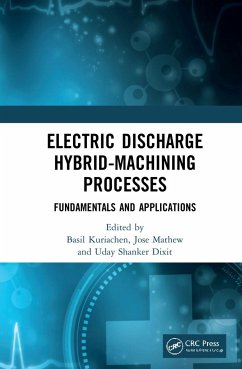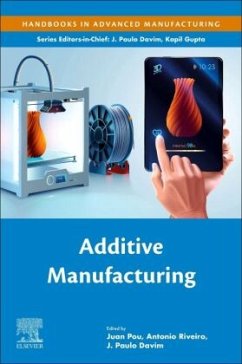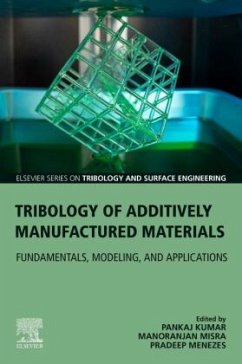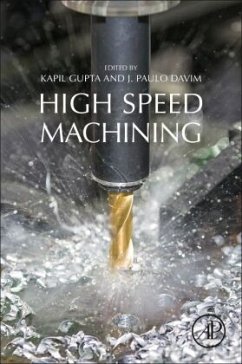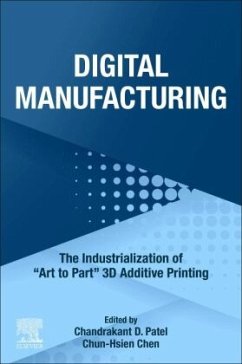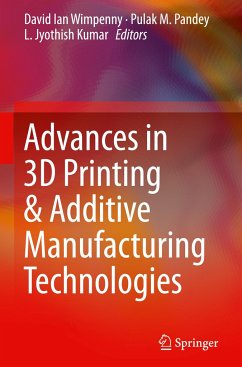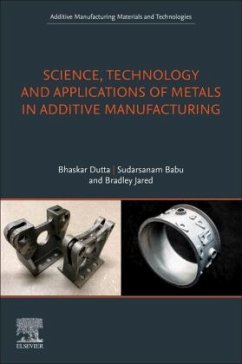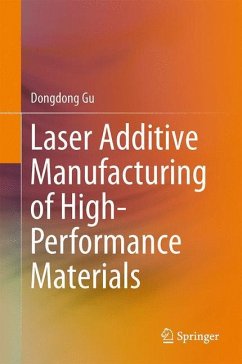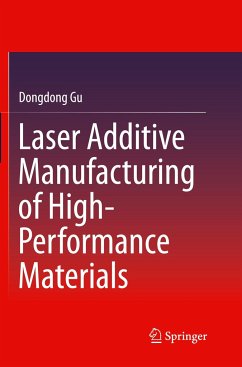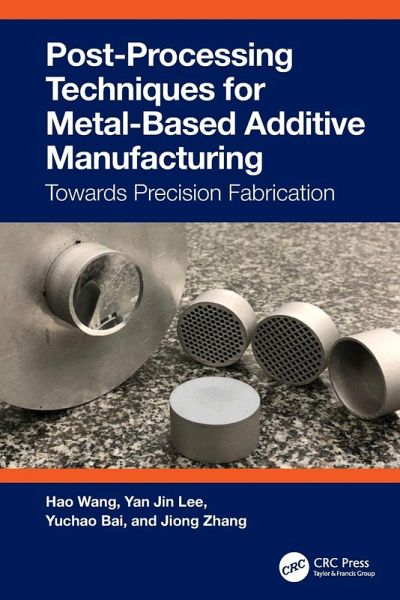
Post-Processing Techniques for Metal-Based Additive Manufacturing
Towards Precision Fabrication
Versandkostenfrei!
Versandfertig in 6-10 Tagen
44,99 €
inkl. MwSt.
Weitere Ausgaben:

PAYBACK Punkte
22 °P sammeln!
This book shares insights on post-processing techniques adopted to achieve precision-grade surfaces of additive manufactured metals including material characterization techniques and the identified material properties.Post-processes are discussed from support structure removal and heat treatment to the material removal processes including hybrid manufacturing. Also discussed are case studies on unique applications of additive manufactured metals as an exemplary of the considerations taken during post-processing design and selection.Addresses the critical aspect of post-processing for metal add...
This book shares insights on post-processing techniques adopted to achieve precision-grade surfaces of additive manufactured metals including material characterization techniques and the identified material properties.
Post-processes are discussed from support structure removal and heat treatment to the material removal processes including hybrid manufacturing. Also discussed are case studies on unique applications of additive manufactured metals as an exemplary of the considerations taken during post-processing design and selection.
Addresses the critical aspect of post-processing for metal additive manufacturingProvides systematic introduction of pertinent materialsDemonstrates post-process technique selection with the enhanced understanding of material characterization methods and evaluationIncludes in-depth validation of ultra-precision machining technologyReviews precision fabrication of industrial-grade titanium alloys, steels, and aluminium alloys, with additive manufacturing technology
The book is aimed at researchers, professionals, and graduate students in advanced manufacturing, additive manufacturing, machining, and materials processing.
Post-processes are discussed from support structure removal and heat treatment to the material removal processes including hybrid manufacturing. Also discussed are case studies on unique applications of additive manufactured metals as an exemplary of the considerations taken during post-processing design and selection.
Addresses the critical aspect of post-processing for metal additive manufacturingProvides systematic introduction of pertinent materialsDemonstrates post-process technique selection with the enhanced understanding of material characterization methods and evaluationIncludes in-depth validation of ultra-precision machining technologyReviews precision fabrication of industrial-grade titanium alloys, steels, and aluminium alloys, with additive manufacturing technology
The book is aimed at researchers, professionals, and graduate students in advanced manufacturing, additive manufacturing, machining, and materials processing.





